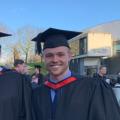
THE number of people who can visit a patient together in Colchester Hospital has been increased for the first time since the start of the Covid-19 pandemic.
East Suffolk and North Essex NHS Foundation Trust has revealed two people will be able to visit a patient at their bedsite in its hospitals in Colchester, Clacton, Harwich and Ipswich.
In line with new national guidance visitors can see their loved one 24 hours after they have been admitted to a ward or assessment unit from tomorrow.
Visiting slots, which must still be booked in advance with ward teams, will also be increased from one hour to two hours.
Read more: School pupils asked to work from home amid 'unprecedented' situation
This allows visits to be staggered throughout the day and footfall to be managed safely and fairly on the wards, the trust stated.
This does not apply to visiting in exceptional or compassionate circumstances, such as end of life care, where more open visiting is in place.
More flexible visiting for carers is also supported, who may stay with a patient as needed and be substituted by a visitor.
The trust added its existing policy of up to three people being able to see a patient for the duration of their hospital stay still applies, but only two out of the three visitors may visit the ward together.
The trust’s chief executive, Nick Hulme said: “We hope this change to allow more people to visit the wards at one time – and for longer – will aid patients’ recoveries by supporting their mental and physical health, and reassure their loved ones too.
“We understand how worrying it is when someone you love is in hospital.
“However, patients in hospital can be more vulnerable to severe illness because of Covid-19, so that’s why we still need to have some visiting restrictions in place at Colchester hospital, and in our community hospitals too.
“This update to our visiting policy reflects we are still managing the risk of Covid, but at the same time recognising the huge contribution visiting makes to the wellbeing of our patients and their families.”



Comments: Our rules
We want our comments to be a lively and valuable part of our community - a place where readers can debate and engage with the most important local issues. The ability to comment on our stories is a privilege, not a right, however, and that privilege may be withdrawn if it is abused or misused.
Please report any comments that break our rules.
Read the rules here